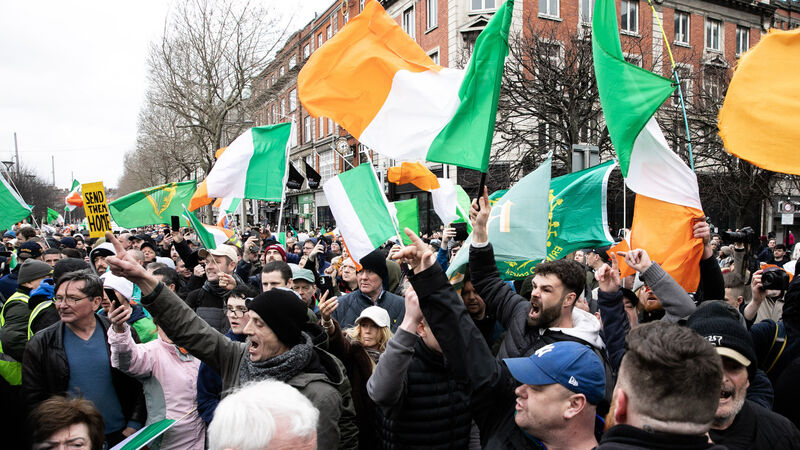Ireland could pay €13m instead of taking in 648 asylum seekers

Anti-immigration activists march past a counter-protest of immigration activists on O'Connell Street in Dublin's city centre. Picture: Gareth Chaney/Collins
Ireland could pay almost €13m instead of taking in 648 asylum seekers every year if the Government agrees to join the new EU migration pact.
Justice Minister Helen McEntee is expected to bring a memo to Cabinet within weeks to advise government to opt in to the deal which was agreed in December.










